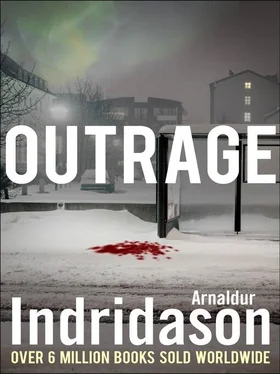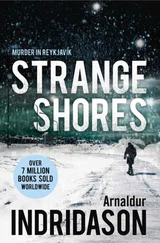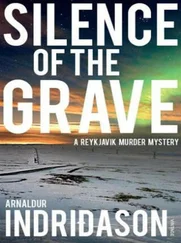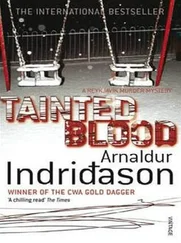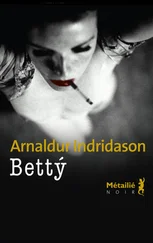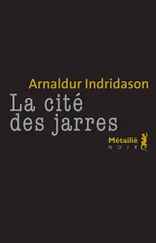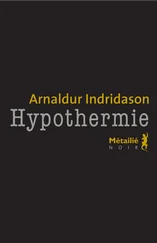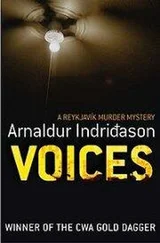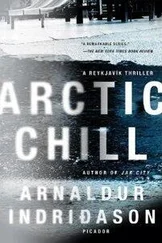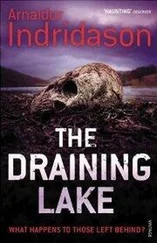Arnaldur Indridason - Outrage
Здесь есть возможность читать онлайн «Arnaldur Indridason - Outrage» весь текст электронной книги совершенно бесплатно (целиком полную версию без сокращений). В некоторых случаях можно слушать аудио, скачать через торрент в формате fb2 и присутствует краткое содержание. Год выпуска: 0101, Издательство: Random House Canada, Жанр: Полицейский детектив, на английском языке. Описание произведения, (предисловие) а так же отзывы посетителей доступны на портале библиотеки ЛибКат.
- Название:Outrage
- Автор:
- Издательство:Random House Canada
- Жанр:
- Год:0101
- ISBN:нет данных
- Рейтинг книги:3 / 5. Голосов: 1
-
Избранное:Добавить в избранное
- Отзывы:
-
Ваша оценка:
- 60
- 1
- 2
- 3
- 4
- 5
Outrage: краткое содержание, описание и аннотация
Предлагаем к чтению аннотацию, описание, краткое содержание или предисловие (зависит от того, что написал сам автор книги «Outrage»). Если вы не нашли необходимую информацию о книге — напишите в комментариях, мы постараемся отыскать её.
Outrage — читать онлайн бесплатно полную книгу (весь текст) целиком
Ниже представлен текст книги, разбитый по страницам. Система сохранения места последней прочитанной страницы, позволяет с удобством читать онлайн бесплатно книгу «Outrage», без необходимости каждый раз заново искать на чём Вы остановились. Поставьте закладку, и сможете в любой момент перейти на страницу, на которой закончили чтение.
Интервал:
Закладка:
‘Oh? Who’s he driving for now?’
‘Driving? No, Ragnar doesn’t drive any more. Not since the accident.’
‘The accident where the other driver died?’
‘Yes — he gave up driving after that.’
‘Because of the accident?’
‘Yes.’ The manager was standing in his office, flicking through bills of lading. He had scarcely looked up from his paperwork.
‘Do you know where he’s working now?’
‘Yes — he’s at a filling station in Hafnarfjördur. I saw him last a couple of months ago. He’s probably still there.’
‘So it affected him badly, did it?’
‘Yes. Like I said, he quit driving. Stopped there and then.’
Elínborg had left the haulage company to drive straight to the filling station that the manager had mentioned. It was a quiet time of day and the place was peaceful. A man was standing at a pump, filling the tank himself to save a few krónur . Inside, at the till, were a woman of about thirty and an older man. The woman ignored Elínborg, looking out at the forecourt, but the man stood up, smiled, and asked if he could help.
‘I’m looking for Ragnar Thór,’ said Elínborg.
‘Yes, that’s me,’ the man replied.
‘Your mobile doesn’t seem to be working.’
‘Oh, were you trying to get hold of me? I haven’t got round to buying a new one.’
‘Could we speak in private?’ asked Elínborg, looking at the woman on the till. ‘I need to ask you something. It won’t take long.’
‘Of course,’ said the man. He also looked at the woman. ‘We can step outside. Who are you?’
They went outside, and Elínborg explained that she was a police officer, working on a delicate case. To cut a long story short, she wanted to ask him about the accident he had been in some years ago, when he’d collided head-on with a car whose driver was killed.
‘The crash?’ replied Ragnar Thór cautiously.
‘I’ve read the reports,’ said Elínborg. ‘But I know things get left out of the written versions. I gather you stopped driving after that?’
‘I … I don’t see how I can help you,’ said Ragnar Thór, stepping away from her. ‘I’ve never discussed it.’
‘I understand. It must have been an awful experience.’
‘With all due respect, you can’t understand it unless it happens to you. I don’t think I can help you, so please leave me alone. I’ve never talked to anyone about it and I’m not going to start now. I hope you’ll respect that.’ He made as if to go back to his work.
‘The case I’m investigating is the Thingholt Murder,’ Elínborg said. ‘Have you heard about it?’
Ragnar Thór halted. A car pulled up at one of the pumps.
‘The young man who was killed — had his throat cut, in fact — was the son of the man who died in the accident.’
Ragnar Thór looked at her, baffled. ‘His son?’
‘Runólfur was his name. He lost his father in that crash.’
The driver who had stopped at the pump sat in his car, waiting to be served. The woman on the till did not move.
‘It wasn’t my fault,’ muttered Ragnar Thór. ‘The accident wasn’t my fault.’
‘I think that’s generally accepted, Ragnar. He swerved across in front of you.’
The waiting driver tooted his horn. Ragnar Thór glanced over at him. The woman on the till was ignoring them. He went over to the car. The driver lowered his window and, without a word, handed him a 5,000- krónur note, then closed the window again.
‘What do you want to know?’ asked Ragnar Thór, when he had started the pump.
‘Was there anything odd about the accident? Something you didn’t mention in your statement? Something to explain how it happened? The report only reaches the conclusion that Runólfur’s father seems to have lost control of the vehicle.’
‘I know.’
‘His wife says he fell asleep at the wheel. Is that true? Or did something else happen? Maybe something distracted him? Did he drop a cigarette on the seat?’
‘That lad in Thingholt was his son?’
‘Yes.’
‘I didn’t know that.’
‘Well, now you do.’
‘If I tell you what I left out of my statement, you mustn’t tell anyone else.’
‘I won’t. You can rely on me.’
Ragnar Thór finished filling the car. They stood by the pump. It was midday, a chilly day. ‘It was suicide,’ said Ragnar Thór.
‘Suicide? How do you know?’
‘You can’t breathe a word of this.’
‘No.’
‘He smiled at me.’
‘Smiled?’
Ragnar Thór nodded. ‘He was smiling when the lorry hit him. He had picked me out — my rig, because it was a big juggernaut with a trailer. He pulled over right in front of me, with no warning. There was nothing I could do. I had no time to react. He steered his car head-on into me and just before the vehicles collided he smiled — from ear to ear.’
The half-empty plane took off from Reykjavík’s domestic airport in the afternoon, climbing fast to its cruising altitude. There was talk of abolishing this route unless the government stepped in with an even larger subsidy for the service. Departure had been delayed by fog at their destination, and it was past two p.m. when conditions improved sufficiently for the plane to take off. The captain greeted the passengers over the public-address system: he apologised for the delay, told them when he expected to land, and informed them that there was low cloud at their destination, with a strong breeze. The temperature there was minus four degrees Centigrade. He wished them a pleasant journey.
Elínborg tightened her seat belt, and recalled her last flight, a few days ago. She thought she recognised the captain’s voice. They flew above the clouds for most of the way, and Elínborg enjoyed having the sun on her left. It had not broken through the clouds very often during the overcast autumn days in Reykjavík.
Elínborg had brought the case file with her and was reading a transcript of Konrád’s confession. He was standing by it and swore that he did not want to change anything. Elínborg knew that being held in custody could have strange and unpredictable effects on people.
‘I want to see my daughter,’ said Konrád, according to the transcript. ‘I won’t answer any more questions until you let me see her.’
‘That’s not going to happen,’ was the police officer’s reply. Elínborg thought it was probably Finnur, who had tipped them off about the possible connection between Edvard and Lilja.
‘How is she?’ asked Konrád.
‘We think she’s on the point of breaking. It’s just a matter of time.’
Elínborg grimaced. Konrád was always asking after his daughter and Elínborg felt that the police officer was attempting a rather simplistic form of psychological intimidation.
‘Is she all right?’
‘She’s all right. For now.’
‘What do you mean, for now ?’
‘Oh, I don’t know. It’s no picnic for her, being held in custody, of course.’
A little while later Konrád gave up all resistance. He was being questioned about how he got into the house. The questions were repeated over and over again until he put his foot down. Elínborg pictured him in the interview room, straightening up where he sat and sighing heavily: ‘I can’t go on like this. I don’t know how I thought I could get away with it. I should have contacted you at once, after I cut him. Then Nína wouldn’t have had to go through all this, for nothing. It was a stupid mistake but I maintain I did it in self-defence.’
‘Are you …?’
‘I killed him. Now leave Nína alone. It was me. I’m just sorry I dragged her into my lies. It was my fault. All my fault. When I saw the state Nína was in, and what had been done to her, I was overcome with rage. She had rung me, told me where she was, where the man lived. I received that horrific call for help from her and hurried over. Nína had managed to open the door for me. I went inside and the first thing I saw was the knife on the table. I thought he’d threatened Nína with it. I didn’t understand the situation. Nína was sitting on the floor, with a half-naked man standing over her. I’d never seen him before. I thought he was going to harm my daughter so I grabbed the knife and cut his throat. He never saw me. I picked up what I could find of her clothes and then took her out, through the garden, down to the next street and to the car. I stopped the car on the way home to throw the knife in the sea. I don’t remember exactly where. That’s what happened. That’s the truth.’
Читать дальшеИнтервал:
Закладка:
Похожие книги на «Outrage»
Представляем Вашему вниманию похожие книги на «Outrage» списком для выбора. Мы отобрали схожую по названию и смыслу литературу в надежде предоставить читателям больше вариантов отыскать новые, интересные, ещё непрочитанные произведения.
Обсуждение, отзывы о книге «Outrage» и просто собственные мнения читателей. Оставьте ваши комментарии, напишите, что Вы думаете о произведении, его смысле или главных героях. Укажите что конкретно понравилось, а что нет, и почему Вы так считаете.
